Curious about our work? Take a look at a few of the projects we're working on.
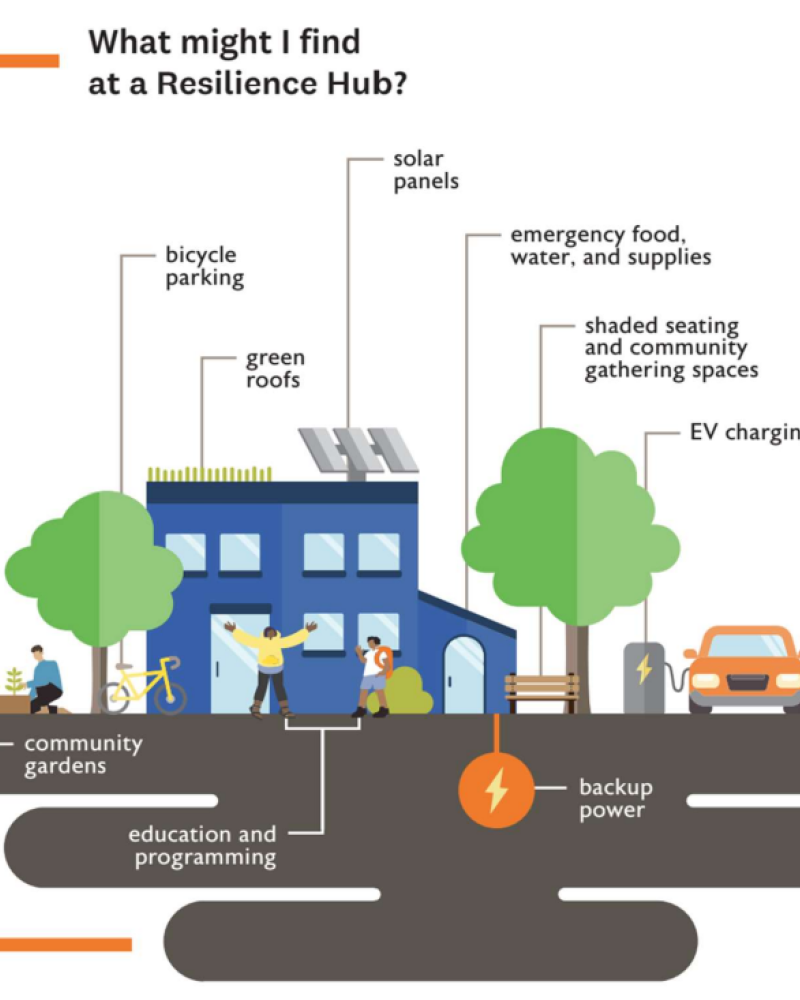
Emergency Preparedness, Social Capital, and Cooling Centers
We examine Austin residents' preparedness for environmental hazards and emergency events (e.g., flooding, heat waves, wildfires), as well as their awareness of cooling centers and resilience hubs. We investigate the socio-demographic and environmental factors that affect how prepared residents' feel for extreme weather events. Our research finds that communities with more social capital - or stronger cohesion and more connections - are better prepared for emergencies. This project also explores residents' utilization of cooling centers to avoid extreme heat, and proximity to Resilience Hubs during emergencies.
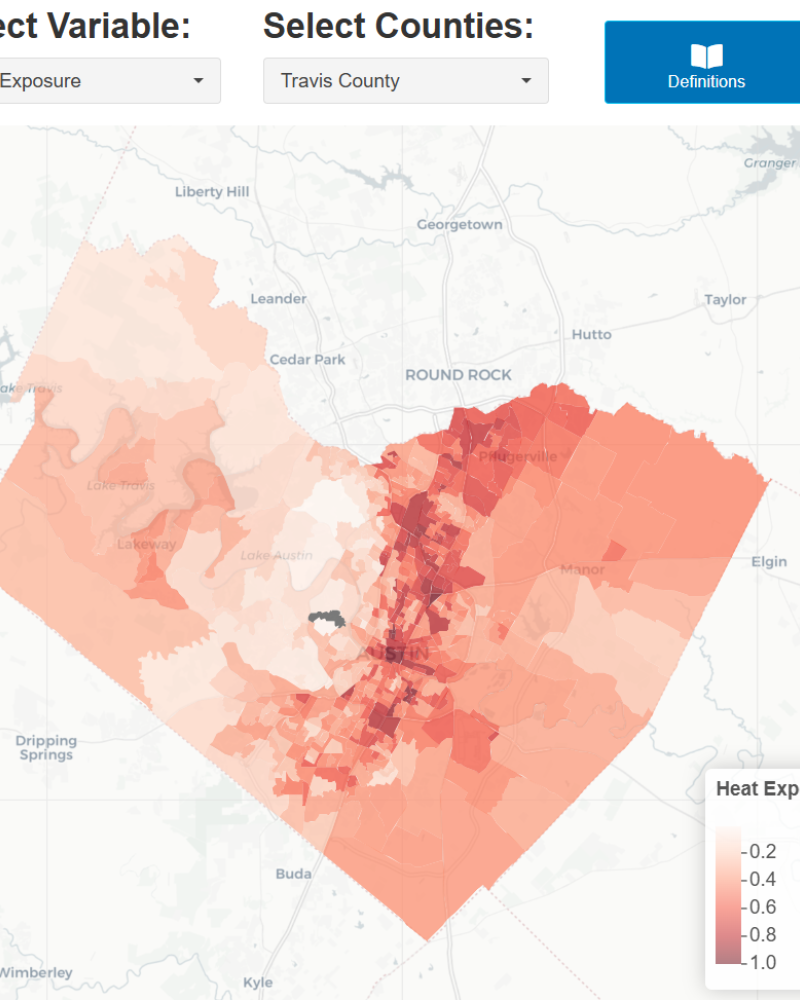
Perceptions of Environmental Hazards and Climate Change Impacts
We examine how Central Texas residents perceive the impacts of climate change and environmental hazards, and how these perceptions intersect with social, demographic, and health factors. We also use satellite and monitoring data to understand investigate whether residents' risk perceptions align with environmental hazard and climate change exposure. Our research focuses on areas experiencing extreme heat and areas at a high risk of flooding.
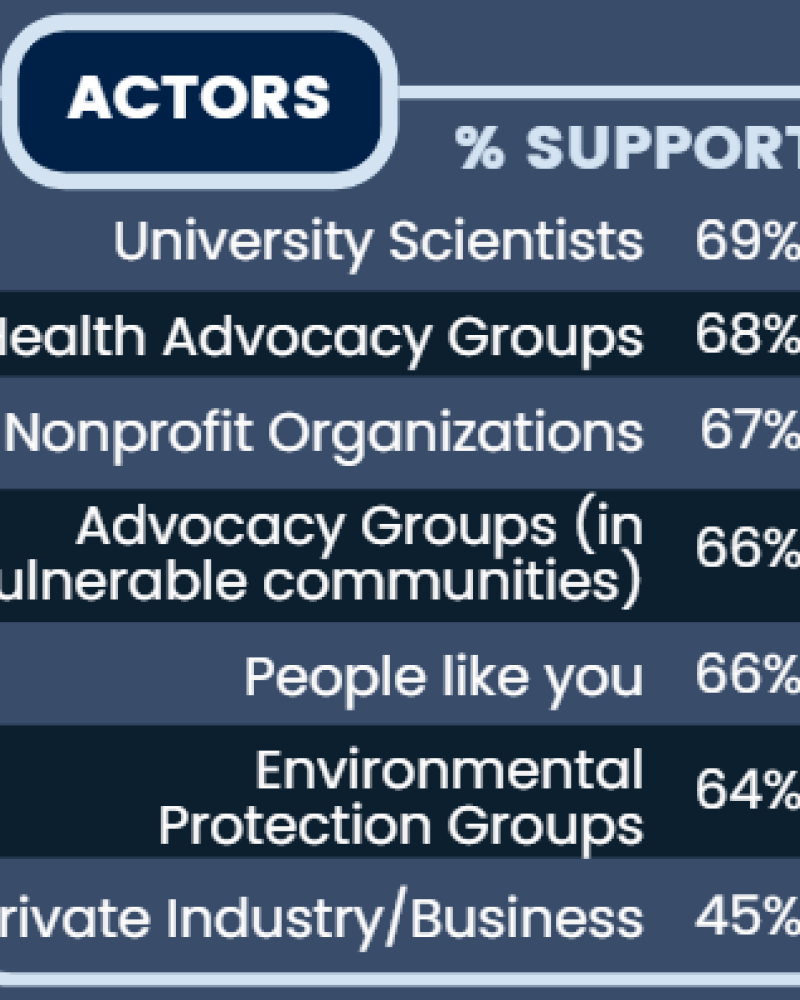
Pathways for Action on the Environment
Our team explores the solutions that Austin residents support for addressing climate change, environmental issues, and health concerns. We investigate which actors residents trust and support to implement sustainable solutions. Our work explores what actions people think are most important for limiting greenhouse gas emissions. We also explore residents' sources of scientific information. By understanding public preferences and trust, this work aims to inform community engagement strategies.
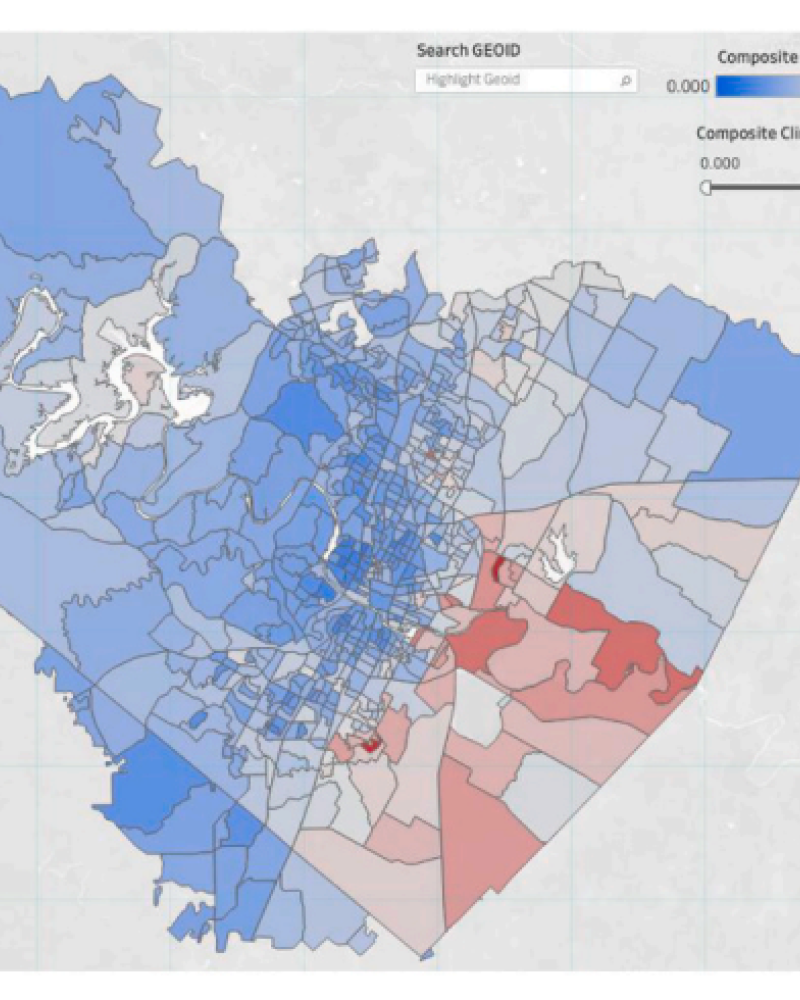
Social Vulnerability, Social Capital, and Community Resilience
This work examines the relationship between social vulnerability, social capital, and community resilience. Social vulnerability refers to a community's susceptibility to harm from hazards and its capacity to respond and recover. Social capital encompasses the networks, norms, and social trust that facilitate collective action within a community. Our research investigates how these factors interact to influence community resilience in the face of challenges such as food and housing insecurity, unemployment, environmental hazard exposure, health issues, and access to resources. By understanding these relationships, we aim to inform strategies that enhance community resilience and support equitable outcomes in the face of environmental and social challenges.
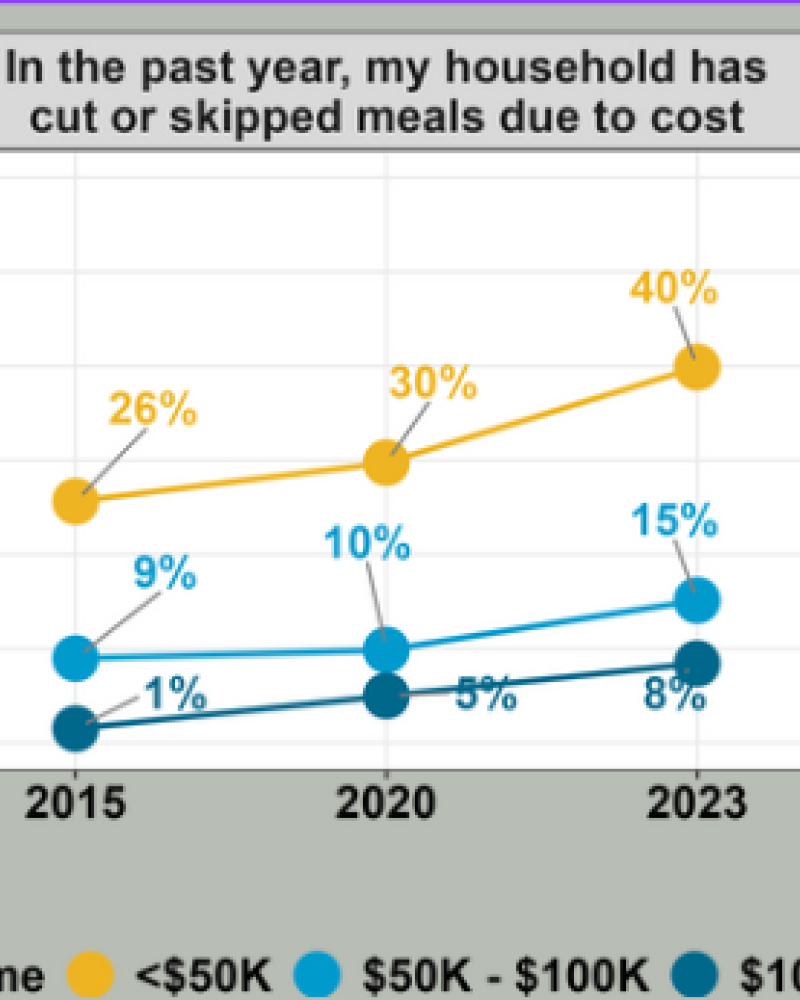
Food Security in Central Texas
This collaborative research with the Department of Nutritional Sciences investigates determinants of food insecurity— when households lack reliable access to affordable, nutritious food. We examine data from 2015 to 2024 to identify who is most at risk of food insecurity. Our work also explores the spatial relationship between food access and insecurity. We analyze how geographic proximity to diverse food retailers (e.g., supermarkets, farmers markets, convenience stores) —influences food security. This spatial analysis helps uncover whether physical access represents a significant barrier to food security and how this varies across different community contexts. Our findings aim to inform targeted interventions and recommendations to address food insecurity.